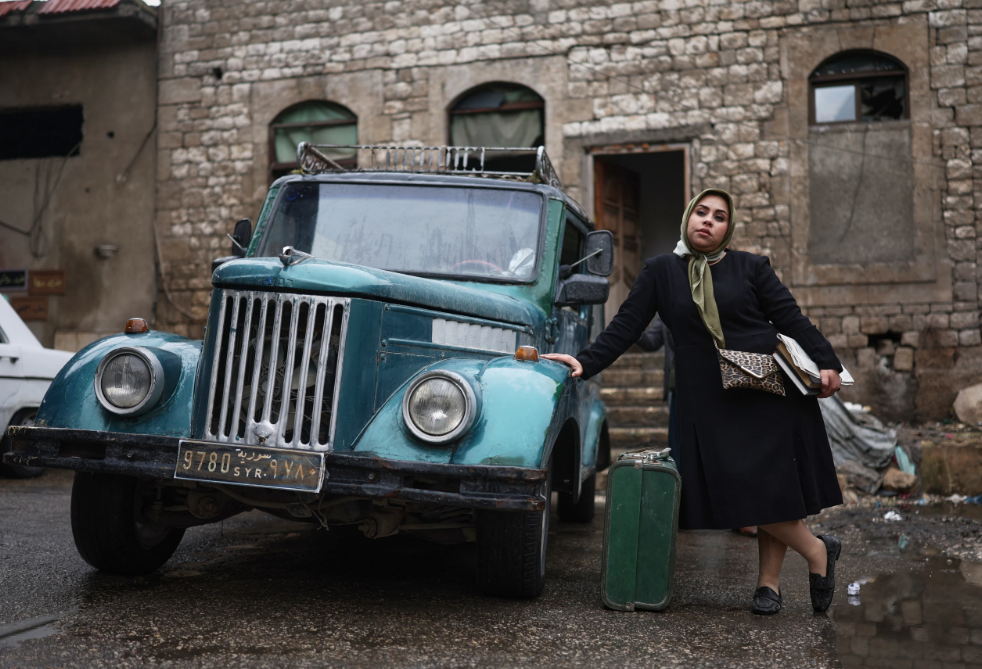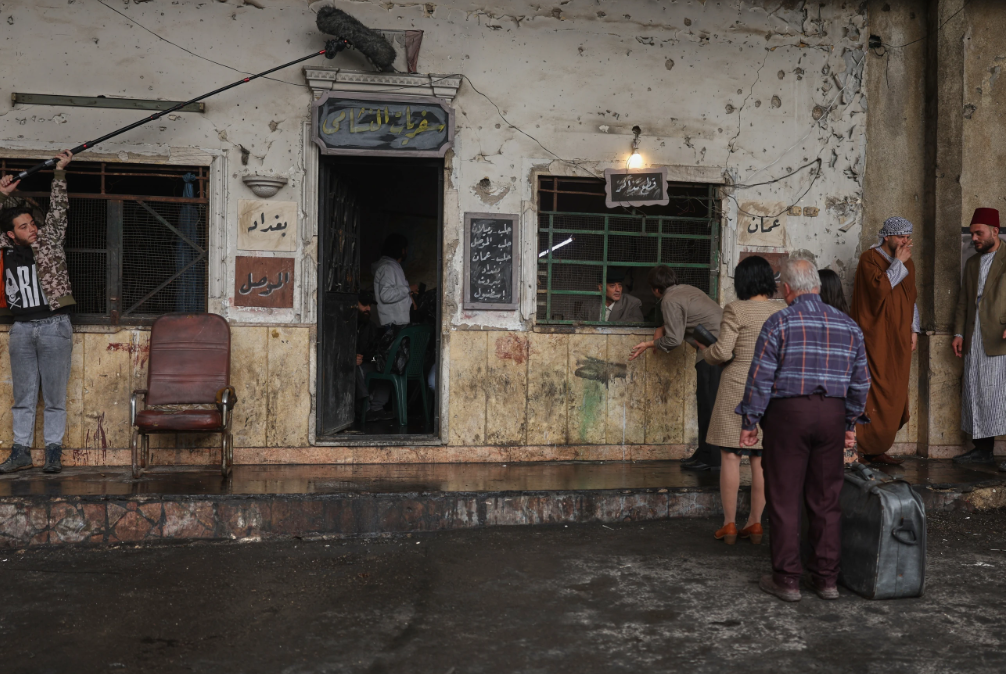Coca-Cola and rival PepsiCo spent hundreds of millions of dollars over decades building demand for their soft drinks in Muslim-majority countries including Egypt to Pakistan. Now, both face a challenge from local sodas in those countries due to consumer boycotts that target the globe-straddling brands as symbols of America, and by extension Israel, at a time of war in Gaza, Reuters reported.
In Egypt, sales of Coke have cratered this year, while local brand V7 exported three times as many bottles of its own cola in the Middle East and the wider region than last year. In Bangladesh, an outcry forced Coca-Cola to cancel an ad campaign against the boycott. And across the Middle East, Pepsi's rapid growth evaporated after the Gaza war started in October.
Pakistani corporate executive Sunbal Hassan kept Coke and Pepsi off her wedding menu in Karachi in April. She said she didn't want to feel her money had reached the tax coffers of the United States, Israel's staunchest ally.
"With the boycott, one can play a part by not contributing to those funds," Hassan said. Instead, she served her wedding guests Pakistani brand Cola Next.
She is not alone. While market analysts say it is hard to put a dollar figure on lost sales and PepsiCo and Coca-Cola still have growing businesses in several countries in the Middle East, Western beverage brands suffered a 7% sales decline in the first half of the year across the region, market researcher NielsenIQ says.
In Pakistan, Krave Mart, a leading delivery app, has seen local cola rivals like Cola Next and Pakola soar in popularity to become about 12% of the soft drinks category, founder Kassim Shroff told Reuters this month. Before the boycott, the figure was closer to 2.5%.
Shroff said Pakola, which is ice-cream soda flavored, made up most of the purchases before the boycott. He declined to provide figures for Coca-Cola and PepsiCo sales.
Consumer boycotts date back at least as far as an 18th century anti-slavery sugar protest in Britain. The strategy was used in the 20th century to fight apartheid in South Africa and has been widely wielded against Israel through the Boycott, Divestment and Sanctions movement.
Many consumers shunning Coca-Cola and PepsiCo cite US support of Israel over decades, including in the current, ongoing war with Hamas. "Some consumers are deciding to make different options in their purchases because of the political perception," PepsiCo CEO Ramon Laguarta told Reuters in a July 11 interview, adding that boycotts are "impacting those particular geographies" such as Lebanon, Pakistan and Egypt.
"We will manage through it over time," he said. "It's not meaningful to our top line and bottom line at this point."
PepsiCo's total revenue from its Africa, Middle East and South Asia division was $6 billion in 2023, earnings releases show. The same year, Coca-Cola's revenue from its Europe, Middle East and Africa region was $8 billion, company filings show.
In the six months following the Oct. 7 Hamas attacks on Israel that triggered the invasion of Gaza, PepsiCo beverage volumes in the Africa, Middle East and South Asia division barely grew, after notching up 8% and 15% growth in the same quarters of 2022/23, the company said. Volumes of Coke sold in Egypt declined by double-digit percentage points in the six months ended June 28, according to data from Coca-Cola HBC, which bottles there. In the same period last year, volumes rose in high single digits.
Coca-Cola has said it does not fund military operations in Israel or any country. In response to a Reuters request, PepsiCo said neither the company "nor any of our brands are affiliated with any government or military in the conflict."
Palestinian-American businessman Zahi Khouri founded Ramallah-based Coca-Cola bottler National Beverage Company, which sells Coke in the West Bank. The company's $25 million plant in Gaza, opened in 2016, has been destroyed in the war, he said. Employees were unharmed, he said.
Khouri said boycotts were a matter of personal choice but didn't really help Palestinians. In the West Bank itself, he said, they had limited sales impact.
"Only ending the occupation would help the situation," said Khouri, who supports the creation of a Palestinian state alongside Israel.
Israel's government did not respond to a request for comment.
HISTORICAL TARGETS
The big soda companies are no stranger to pressure among the Muslim world's hundreds of millions of consumers. After Coke opened a factory in Israel in the 1960s, it was hit by an Arab League boycott that lasted until the early 1990s and benefited Pepsi for years in the Middle East.
Coke still lags Pepsi's market share in Egypt and Pakistan, according to market research firm GlobalData.
PepsiCo, which entered Israel in the early 1990s, itself faced boycotts when it purchased Israel's SodaStream for $3.2 billion in 2018.
In recent years though, Muslim-majority countries with young, rising populations have provided some of the soda giants' fastest growth. In Pakistan alone, Coca-Cola says it has invested $1 billion since 2008, yielding years of double-digit sales growth. PepsiCo had similar gains, according to securities filings.
Now, both are losing ground to local brands.
Cola Next, which is cheaper than Coke and Pepsi, changed its ad slogan in March to "Because Cola Next is Pakistani," emphasizing its local roots.
Cola Next's factories cannot meet the surge in demand, Mian Zulfiqar Ahmed, the CEO of the brand's parent company, Mezan Beverages, said in an interview. He declined to share volume figures.
Restaurants, Karachi's private schools association and university students have all taken part in anti-Coca-Cola actions, eroding goodwill built through sponsorship of Coke Studio, a popular music show in Pakistan.
Exports of Egyptian cola V7 have tripled this year compared to 2023, founder Mohamed Nour said in an interview. Nour, a former Coca-Cola executive who left the company after 28 years in 2020, said V7 was now sold in 21 countries.
Sales in Egypt, where the product has only been available since July 2023, were up 40%, Nour said.
Paul Musgrave, an associate professor of government at Georgetown University in Qatar, warned of long-term damage to consumer loyalty due to boycotts. "If you break habits, it’s going to be harder to win you back in the long run," he said, without giving an estimate of the financial cost to the companies.
BANGLADESH BACKFIRE
In Bangladesh, Coke launched an advertisement showing a shopkeeper talking about the company's operations in Palestine.
After a public outcry over perceived insensitivity, Coke pulled the ad in June and apologized. In response to a question from Reuters, the company said the campaign "missed the mark."
The ad made the boycott worse, said one Bangladeshi advertising executive, who declined to be named because he was not authorized to speak to the media. Other American brands seen as symbols of Western culture, such as McDonalds and Starbucks, also face anti-Israel boycotts.
Market share for global brands fell 4% in the first half of 2024 in the Middle East, according to NielsenIQ. But the protests have been more visible against the widely-available sodas.
As well as boycotts, inflation and economic turmoil in Pakistan, Egypt and Bangladesh eroded consumers' buying power even before the war, making cheaper local brands more appealing.
Last year, Coke's market share in the consumer sector in Pakistan fell to 5.7% from 6.3% in 2022, according to GlobalData, while Pepsi's fell to 10.4% from 10.8%.
FUTURE PLANS
Coca-Cola and its bottlers, and PepsiCo, still see the countries as important areas for growth, particularly as Western markets slow down.
Despite the boycotts, Coke invested another $22 million upgrading technology in Pakistan in April, it said in a press release at the time.
Coca-Cola's bottler in Pakistan said to investors in May that it remained "positive about the opportunity" the world's fifth most-populous country offers, and that it invested in the market with a long-term commitment.
In recent weeks, PepsiCo reintroduced a brand called Teem soda, traditionally lemon-lime flavored, in Pakistani market, a spokesperson confirmed. The product is now available in a cola flavor with "Made in Pakistan" printed prominently on the label.
The companies are also still injecting the Coke and Pepsi brands into the fabric of local communities by sponsoring charities, musicians and cricket teams.
Those moves are key to Coke and Pepsi keeping a toehold in the countries long-term even as they face setbacks now, Georgetown's Musgrave said.
"Anything you can do to make yourself an ally or presence, a part of a community," helps, he said.
Coke and Pepsi Boycott over Gaza Lifts Muslim Countries' Local Sodas

An employee of Kinza soft drinks company scans the fresh delivery of drinks at the Kinza warehouse in Doha, Qatar, September 2, 2024. REUTERS/Ibraheem Abu Mustafa

Coke and Pepsi Boycott over Gaza Lifts Muslim Countries' Local Sodas

An employee of Kinza soft drinks company scans the fresh delivery of drinks at the Kinza warehouse in Doha, Qatar, September 2, 2024. REUTERS/Ibraheem Abu Mustafa
لم تشترك بعد
انشئ حساباً خاصاً بك لتحصل على أخبار مخصصة لك ولتتمتع بخاصية حفظ المقالات وتتلقى نشراتنا البريدية المتنوعة









